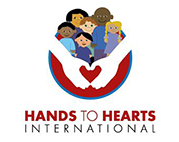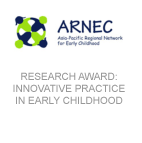Have you seen the recent story of the 7-year-old Russian boy who was adopted to the US and then sent back to Russia with a note in his pocket? Read about it on CNN. This story seems shocking to most, but sadly, it is familiar to me. This is the exact illustration of why HHI was founded, its almost the same as the story I tell that was my personal tipping point — that which had me quit my “real job” to begin HHI in 2004. It is a classic case of a child who did not learn how to love and be loved, a basic human capacity, but one that must be learned from a loving, nurturing and consistent caregiver. This child was adopted last year at the age of 6, from an orphanage. Now from those tiny pieces of information, it is extremely likely he did not have a loving, nurturing and consistent caregiver in his first 6 years of life.
I have no idea about the orphanage from which he was adopted, but by its very definition, orphanages are about the worst place possible for a child to grow. There is no way that “staff” can truly provide the love and consistency that a child needs to build a sense of trust, belonging, security, love – the basic building blocks of all human relationships. And when these pieces are not in place in the earliest years, there is a high probability that that child will develop Attachment Disorder. This is an insidious and tragic disorder. It is not always visible, but when you do see Attachment Disorder it can look like this young boy. He was reportedly violent, lit fires and was of threat to the family.
Those reports portray the tragic consequences of Attachment Disorder, just like countless other children I served for ten years in the children’s mental health system. Specifically this story of failed adoption resembles one boy I worked with who intentionally smashed his two-year-old foster-sister’s hand in the door. Her hand was badly broken, and at the tender age of five, this boy failed out of his third foster home, second adoption and went to his first locked psychiatric unit. What was even crazier was that this child was much more comfortable in the psych ward. Why? Because at the psychiatric hospital he was not required to engage in relationships.
The devious thing about Attachment Disorder is that the child learns that the one he loves the most – typically his parent – is not safe, they are wildly unpredictable, maybe at times disappearing for days, while at other times turning violent in a flash. Or in the orphanage scenario, the caregivers change throughout the day and night. Potentially a child has a dozen different caregivers, each changes the diapers and feeds differently, some respond to a cry, some may talk to to the child, while others may not. Add to that doctors, physical therapists, speech therapists, volunteers and a few others – and each of them interacts with the child differently. All the while the baby brain is growing and trying to make connections to build a set of standard expectations for the world.
Imagine the scenario for yourself. In one case a violent or grossly negligent person is who teaches you the building blocks of relationships, in the other it is an unpredictable, mass swirl of every changing people – neither feels safe! You are bound to be confused, uncomfortable and even scared when other people want to draw close to you. You assume that it is only a matter of time before the pattern of chaos or danger will repeat. Hence you act out in an assorted variety of unpleasant ways, doing whatever it takes to push love away before you are hurt or abandoned again. As protection, you do whatever it takes to keep those who want to love you at a distance. If when you fill the heating vents with shampoo and you are forgiven, then you have to try harder. You might lock everyone out of the house and taunt them from the warm and dry inside of the house. Again, most parents would forgive. So, you must continue to up the ante — hurt or kill a family pet, vandalize the house, kick, bite, and hit! And, if you are still forgiven… and you truly believe that you must get away from these people who love you (before they hurt you by abandoning you) – then all bets are off, cause whatever level of violence is necessary.
That is how a 5 year old boy can intentionally, maliciously break the hand of his younger foster sister. He won, he believed that he was unlovable and in his warped logic he proved he was right. He was sent away and sent to a place where he was not threatened by love — the psychiatric hospital. His predictable future is sadly more of the same, he will continue to hurt and it will take years of predictable, stable love, combined with dump truck loads of patience and forgiveness, to help him heal.
There may still be some people who think what HHI does is “very nice”, but its not as important as medical interventions. I ask you to shift your perspective, consider the power of preventive medicine. What is it worth to save a child from the life described above? This is exactly what HHI aims to do and by reports, we are succeeding.









